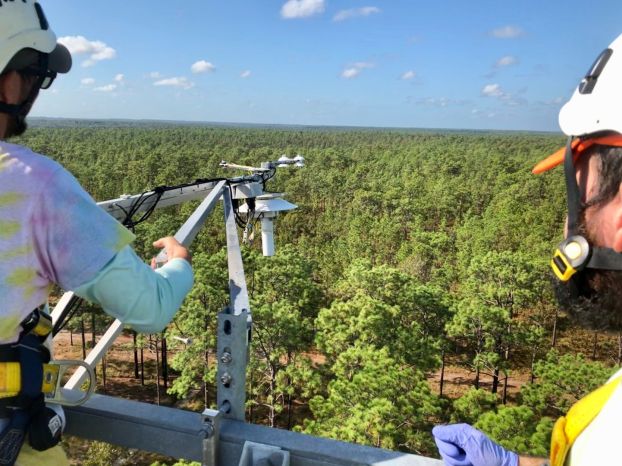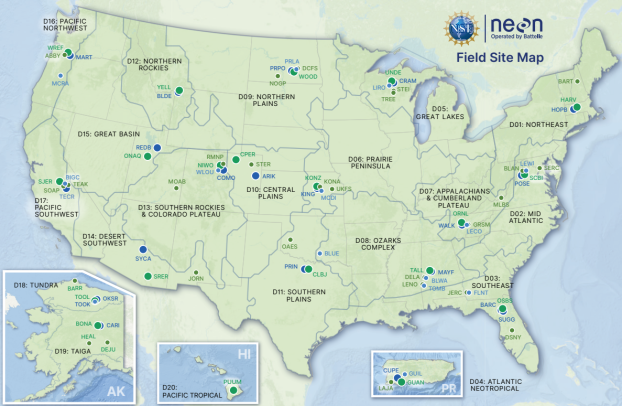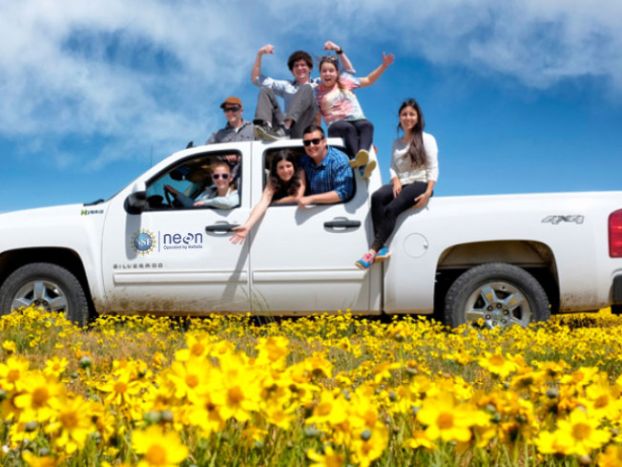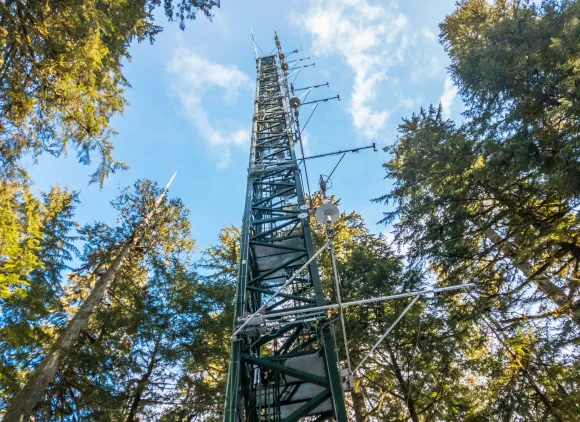Supported by the U.S. National Science Foundation and operated by Battelle, the National Ecological Observatory Network (NSF NEON) provides high-quality, open and free data to enable research on the impacts of climate and land-use change, water availability and invasive species on the nation's living ecosystems.
 On this page
On this page
What is NSF NEON?
NEON is a continental-scale observation facility designed to collect long-term open-access ecological data to better understand the complexities of Earth's ecosystems and how they are changing.
NEON uses cutting-edge sensor networks, instrumentation, observational sampling, natural history archive facilities and remote sensing methods and technologies to collect data on plants, animals, soil, nutrients, freshwater and the atmosphere.

NSF NEON sites
NEON has 81 sites, including rivers, wadeable streams, lakes and various terrestrial ecosystems, freshwater and terrestrial field sites across 20 ecoclimatic Domains of the U.S., including Alaska, Hawaii and Puerto Rico. From tropical forests and desert habitats to tiny streams and lake environments, each Domain represents a region with distinct landforms, vegetation, climate and ecosystem dynamics. Where possible, aquatic and terrestrial sites in the same Domain have been located near one another to support an understanding of the linkages between the two ecosystems and their interactions with the atmosphere.
All archived samples are available upon request, and related data are publicly available through the NEON Data Portal [neonscience.org].

Credit: NEON operated by Battelle
Resources available to researchers
NEON collects over 180 data products, including biological, atmospheric, hydrologic and geographic measurements and observations. In addition to the data and samples, NEON provides several resources to enable communities to use those data and samples and to add their measurements to complement those provided by NEON.
Biorepository
Find data on archived physical samples and information on requesting a loan from NEON Biorepository at Arizona State University, NEON's primary sample and specimen collection.
Data Portal
Access all of NEON's data products, including physical samples, water quality, energy fluxes and more. Data are free and open to all.
Code Hub
Find software and code from both NEON and the NEON community that can make working with NEON data easier.
Learning Hub
Explore self-paced data tutorials, teaching modules and NEON-related code resources.
Research Support Services
Use NEON infrastructure, site coordination, and a labor pool of field ecologists, engineering and science staff for research projects and other activities. See how other scientists have leveraged NEON in their funded proposals here at neonscience.org.
NEON Document Library
Explore documents that provide reference information about NEON sites, sensors, data collection and processing methods.
Workshops and Courses
Participate in NEON-facilitated workshops and find short courses led by the NEON community that provide in-depth training in a particular field.
Internship opportunities
NEON partners with colleges, universities and other organizations to provide on-site and remote internship opportunities for students and recent graduates to work with NEON technologies and data.
Interns can also receive hands-on training in field collection methods and participate in NEON data collection alongside field scientists.

Featured funding
The Directorate for Biological Sciences (BIO) encourages proposals that leverage NEON resources, including publicly available data through NEON's data portal, biological specimens and soil samples.

